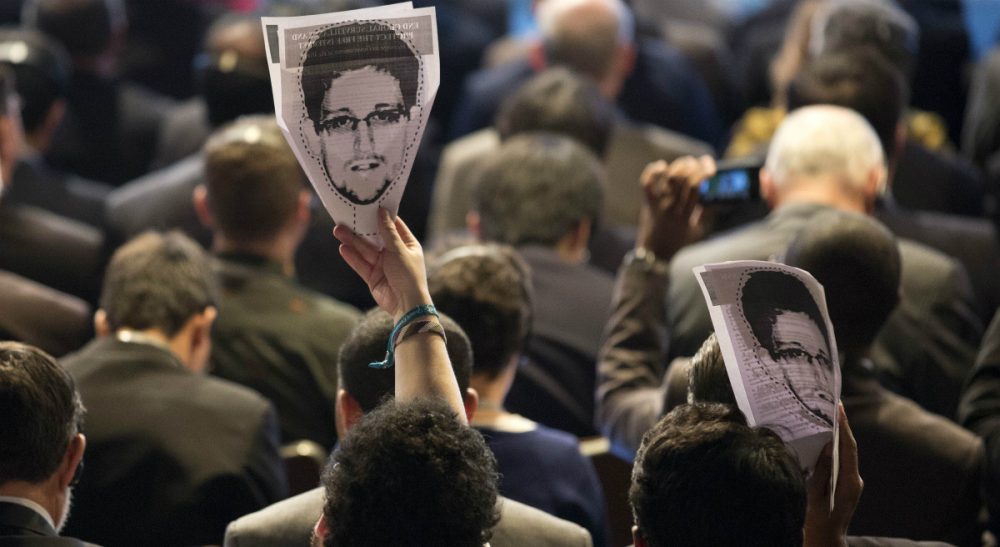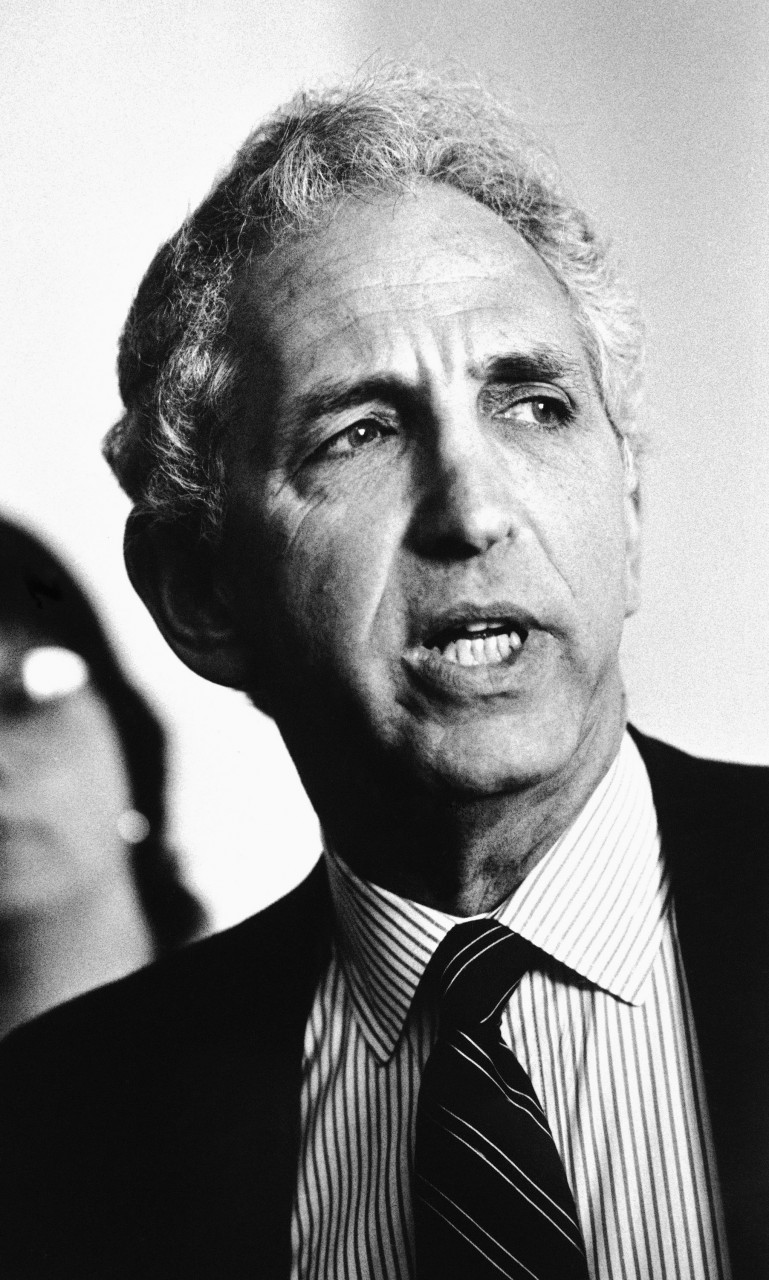Advertisement
Was Edward Snowden Justified? A Year Later, The Debate Rages On

Whistle-blowers keep making news, but none more than Edward Snowden, who at this time last year revealed the huge scope of U.S. government intrusion into the lives of innocent Americans and millions of others around the world. But did you know that blowing the whistle on corruption — and defending those who do — is a patriotic American tradition that dates back to the founding of our nation?
In 1777, just months after the signing of the Declaration of Independence, a group of sailors and marines blew the whistle on Commodore Esek Hopkins, the powerful commander-in-chief of the Continental Navy, for treating prisoners “in the most inhumane and barbarous manner.” When the Navy suspended Hopkins as a result, he retaliated by filing a criminal libel suit against the whistle-blowers. Within a month, the Continental Congress passed America’s first whistle-blower-protection law, establishing the defense of whistle-blowers as a cornerstone of our democracy.
There is a striking parallel between the Pentagon Papers and the Snowden revelations.
Nearly 200 years later, in 1971, Daniel Ellsberg ushered in a new era of patriotic whistle-blowing. In a profound act of conscience and courage, Ellsberg, a senior military analyst who spent time in Vietnam in the 1960s and worked on a “top-secret” study of the U.S. war there — released 7,000 pages of these documents to the American people. The New York Times began publishing them as the now-famous Pentagon Papers, revealing how four presidential administrations (Truman, Eisenhower, Kennedy and Johnson) had covered up the failing war and secret escalation of U.S. troops in Vietnam, while lying to the American people by assuring them that victory was near.
By releasing the Pentagon Papers, Ellsberg — who was, at the time, not much older than Snowden is today — helped end the war. Yet he faced 115 years in prison for violating the Espionage Act and other laws, and he might have gone down, too, but for the crass overreaching of the fifth consecutive president to mislead the public on Vietnam, Richard Nixon. When Nixon operatives got caught for breaking into the office of Ellsberg’s psychiatrist in an attempt to find information to discredit him, the crime so corrupted the administration’s case that Ellsberg went free, and it contributed to Nixon leaving office in disgrace.

There is a striking parallel between the Pentagon Papers and the Snowden revelations. Both Ellsberg and Snowden worked “inside the system,” which gave them access to the very information that sparked their crises of conscience. Both men worked for and believed in their government, trying in vain to raise concerns internally. Ultimately, they sacrificed their careers and risked their freedom for the public good, exposing elected representatives and government agencies acting outside the law and lying to or misleading the public to cover up their misdeeds.
With the distance of time and the perspective of history, it is clear to almost all now that the United States would have been far worse off if Daniel Ellsberg had been punished for his act of patriotism, serving his life in prison instead of living free as an activist, fighting for democracy and human rights.
Today, Ellsberg is speaking out in defense of Snowden, saying he “has done more than anyone in or out of government in this century to demonstrate his patriotism, moral courage and loyalty to the oath of office… to support and defend the Constitution of the United States.”
Of course, blowing the whistle can generate intense controversy, at least at first, and it doesn’t guarantee a place in history. But consider what two others accomplished — and what it took to vindicate them.
Tom Drake was a former senior official of the National Security Agency (NSA). Drake faced prosecution under the Espionage Act for revealing a costly, overreaching data-collection program that threatened Americans’ privacy rights. For this, Drake incurred 10 felony counts and risked 35 years in jail, before a combination of legal advocacy and media outrage resulted in a deal: no jail time, no fine.
Similarly, Cathy Harris worked as a senior inspector for the U.S. Customs Service at the Atlanta airport when she disclosed to the media the Custom Service’s practice of discriminatory racial profiling, namely, targeting women of African descent for abusive pat-downs and prolonged detentions. Eventually, it took a damning Government Accountability Office (GAO) report to affirm Harris’s revelations, which led to adoption of federal laws against these demeaning and unconstitutional practices.
What links all of these patriotic whistle-blowers — from the sailors and marines who blew the whistle on Commodore Hopkins, to Ellsberg, Drake, Harris and Snowden — is a common belief that openness is the best antidote to abuses of power, and the shared view that one person can make a difference.
Especially in this era of government secrecy and mass surveillance, a healthy democracy requires both, and we must continue to defend their champions.
Editor's Note: The ACLU is providing Snowden with legal advice and counsel.
Related:
